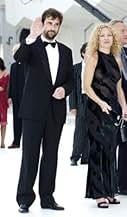Un cambrioleur new-yorkais, une femme de cent ans coriace, deux frères du Far West, un révolutionnaire macédonien et une belle femme enceinte se croisent dans un conte qui s'étend sur deux c... Tout lireUn cambrioleur new-yorkais, une femme de cent ans coriace, deux frères du Far West, un révolutionnaire macédonien et une belle femme enceinte se croisent dans un conte qui s'étend sur deux continents et trois siècles.Un cambrioleur new-yorkais, une femme de cent ans coriace, deux frères du Far West, un révolutionnaire macédonien et une belle femme enceinte se croisent dans un conte qui s'étend sur deux continents et trois siècles.
































